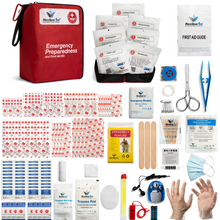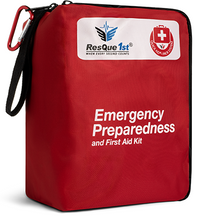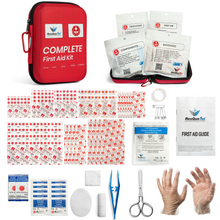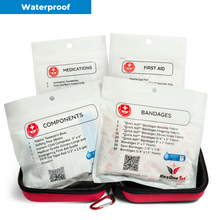
The sun is shining, your friends are over, and you're ready to eat. Time to fire up the grill! Backyard grilling is a fun and delicious way to spend time with loved ones. However, if it's approached the wrong way it can also be a source for injuries. Make sure your next BBQ stays fun by knowing how to prevent and respond to common grill-related mishaps.
Burns
Cooking over an open heat source makes it very easy to receive a burn. While most grilling burns are minor, a second's inattention can result in a trip to the emergency room. Keep yourself and your family safe by following these prevention tips:
- Keep your grill or fire far away from where your guests are walking and playing.
- Clean your grill regularly to keep flammable grease from building up.
- Instruct any children present to stay at least three feet away from the grill or fire at all times.
- Use long-handled tools designed for grill use.
- Don't add starter fluid after your grill is lit.
Unfortunately, even with the best intentions it's still possible to receive a burn from your grill. If you or someone else is burned, assess the area to determine the extent of the damage. First and second degree burns are generally safe to treat at home. However, if the burned area blisters immediately or goes deep enough to impact the muscle or bone, get medical help right away.
To treat minor burns, remove any clothing or jewelry near the affected area. Immerse the burned skin into cool water for 15 minutes. This helps relieve pain and minimize swelling. Protect the burned skin with a bandage, use an over the counter pain reliever to help manage discomfort, and consider applying aloe vera. Avoid applying butter or milk to the burn: both can slow healing and may increase the risk of infection.
Minor burns will heal without additional treatment, but it's important to keep an eye out for infection. Contact a doctor if you see a change in the color of the skin surrounding the burn, if the burn suddenly grows deeper, or if you notice pus or discharge exiting the wound.
Heat Exhaustion
Spending time in the sun may feel good at first, but too much heat and too little water can lead to heat exhaustion. Heat exhaustion happens when your core body temperature becomes elevated and you haven't had enough fluids. You may experience extreme thirst, headache, physical weakness, nausea, vomiting, dizziness, muscle cramps, or fainting.
Prevent heat exhaustion by staying hydrated, particularly if you're serving alcohol at your barbeque. If you suspect someone is suffering from heat exhaustion, get them out of the sun and into a cool area immediately. Encourage them to drink water, and offer a cool wet towel to help them cool down.









